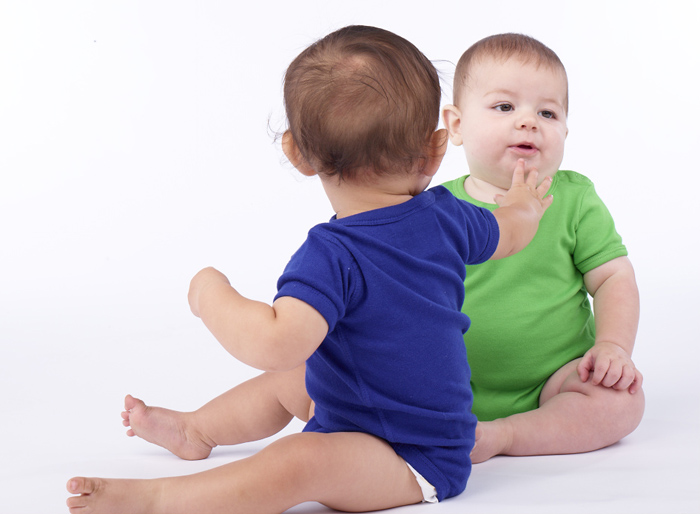As a parent, experiencing your baby hitting you in the face can be both surprising and concerning. This behavior is often puzzling, leaving many caregivers wondering about its causes and how to effectively address it. In this article, we will explore the reasons behind this behavior, how to respond appropriately, and tips for managing it as part of your child's development.
Understanding infant behavior is crucial for effective parenting. Babies communicate their feelings and needs through various actions, and hitting can be one of them. By gaining insight into this behavior, you can foster a healthier environment for your child and yourself, ensuring a positive relationship as they grow. This article will provide you with expert insights, practical advice, and resources to help you navigate this challenge.
Join us as we delve into the world of infant behavior, examining the reasons why babies hit, how to respond, and the best practices to encourage positive interactions. Whether you are a new parent or have experience, this guide aims to support you in understanding your baby better.
Table of Contents
- Reasons Why Babies Hit
- The Developmental Stage of Infants
- How to Respond to Hitting
- Setting Boundaries with Your Baby
- Encouraging Positive Behavior
- When to Seek Help
- Common Misconceptions About Hitting
- Conclusion
Reasons Why Babies Hit
Understanding the reasons behind your baby's hitting behavior is essential for addressing it effectively. Here are some common reasons why babies may hit:
- Exploration: Babies explore their world through their senses, including touch. Hitting might be their way of testing boundaries.
- Attention-Seeking: Sometimes, babies hit to gain attention from caregivers, whether positive or negative.
- Frustration: As babies develop, they may become frustrated when they can't express their needs verbally.
- Excitement: Hitting can also be a reaction to excitement, as babies often express strong emotions physically.
The Developmental Stage of Infants
Understanding the developmental stage of your baby can provide valuable context for their behavior. Here are key points to consider:
- Infancy (0-12 months): Babies are learning about their environment and how to interact with it.
- Toddler Stage (1-3 years): This is when physical exploration increases, and children may test limits more frequently.
During these phases, hitting can be a normal part of their development as they learn social cues and boundaries.
How to Respond to Hitting
When your baby hits you in the face, how you respond can significantly impact their understanding of appropriate behavior. Here are effective strategies:
- Stay Calm: Reacting with anger can escalate the situation. Stay composed to model appropriate responses.
- Use Simple Language: Calmly explain that hitting is not acceptable. Use phrases like, "No hitting, that hurts."
- Redirect Their Attention: Offer alternative behaviors or activities to channel their energy positively.
Setting Boundaries with Your Baby
Establishing boundaries is crucial in guiding your baby's behavior. Here are some effective methods:
- Consistency: Be consistent in your responses to hitting. Children learn through repetition.
- Positive Reinforcement: Praise your baby for gentle touches and positive interactions to encourage good behavior.
- Modeling Behavior: Show them how to express emotions without hitting by modeling gentle behavior yourself.
Encouraging Positive Behavior
Promoting positive behavior can help reduce instances of hitting. Here are some strategies:
- Provide Alternatives: Teach your baby how to express themselves using words or gestures instead of physical actions.
- Engage in Play: Interactive play can help your baby learn social cues and appropriate ways to express excitement.
- Read Books: Reading age-appropriate books about emotions and social interactions can be beneficial.
When to Seek Help
If your baby's hitting behavior persists or worsens, it may be time to seek professional guidance. Consider consulting a pediatrician or child psychologist if:
- The hitting becomes aggressive or injurious.
- You're concerned about your child's emotional development.
- Other behavioral issues arise alongside hitting.
Common Misconceptions About Hitting
There are several misconceptions regarding babies hitting. Here are a few:
- It's Always a Sign of Anger: Hitting can be due to excitement or exploration, not just anger.
- Only Boys Hit: Both boys and girls can exhibit hitting behavior as part of their development.
- All Babies Hit: While hitting is common, not all babies will exhibit this behavior.
Conclusion
In summary, understanding why your baby hits you in the face can help you respond appropriately and encourage positive behavior. By staying calm, setting boundaries, and providing alternatives, you can guide your child through this developmental phase. Remember, if you have concerns about your child's behavior, don't hesitate to seek help from professionals.
We encourage you to share your experiences in the comments below, and feel free to explore more articles for tips on parenting and child development!
Final Thoughts
Parenting is a journey filled with challenges and joys. Navigating behaviors like hitting can be tricky, but with the right knowledge and strategies, you can foster a positive environment for your child. Thank you for reading, and we hope to see you back for more insights!


